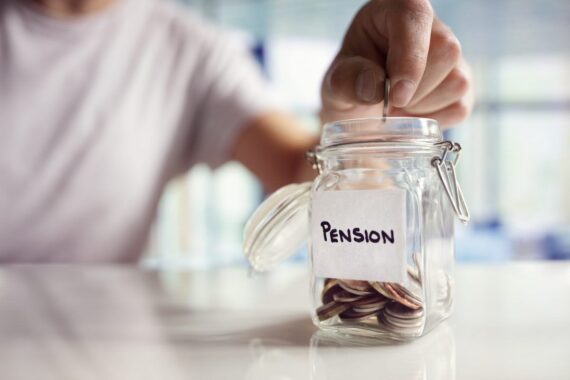The Government has unveiled proposed changes to the NHS pension scheme, including modifications to clarify the way GP pensionable earnings are calculated.
Under the changes up for consultation, some GP partners would need to provide a ‘revised’ annual certificate of pensionable earnings if their GP practice accounting year is not aligned with the tax year.
The Government said that this impacts around 30% of GP practices in England and Wales that do not align their annual accounting period with the tax year.
From April this year, practices’ profits must be taxed on a ‘tax year’ basis, while previously they could be taxed on the basis of their annual accounting period, and this change had ‘a knock-on impact’ on the income tax affairs of some GP partners, who now need to report and pay income tax on the basis of their tax year rather than their practice’s accounting year profits.
Currently, the calculation of pensionable earnings for each scheme year (which runs from 1 April to 31 March) is based on an annual certificate of pensionable profits, based on the self-assessment tax returns members submit to HMRC, and so could be based on provisional figures which would not take account of the final figures provided to HMRC.
The changes would mean that affected GPs would have to submit a revised annual certificate of pensionable earnings where their certificate was based on a provisional figure submitted to HMRC in their self-assessment tax return.
The consultation is also seeking views on other changes to the scheme, including:
- Retrospectively amend the definition of overtime in the 2015 Scheme and include a ‘carve out’ for part-time members who had their additional hours treated as non-pensionable. The amended regulations would allow them to keep their current position (that is, non-pensionable) by default unless they choose those hours to now be pensionable and pay contributions.
- Clarify the method for calculating contributions where pay reduces during a period of absence. This would mean using actual pay to determine the contribution rate for members in receipt of reduced pay.
- Allow members who are affected by the McCloud remedy to revoke a deferred choice election or for a deferred choice election to lapse in certain circumstances
- Make other technical and miscellaneous amendments, including new references to neonatal care leave that the Department for Business and Trade will bring into law from next year.
AISMA chair Deborah Wood said that the organisation has been providing advice on the impact of basis period reform, which has changed the way in which income is allocated to tax years, and has been recommending the annual certificate change proposed in the consultation.
She told Pulse: ‘As part of this we recommended that the NHS pension scheme rules should change to allow self-employed GPs and non-GP provider partners to update their annual certificate of pensionable profits to mirror the treatment of the amount of taxable profits declared to HMRC on their self-assessment tax return, for the transitional period and for the following four years from 2024/2025.
‘We are pleased to see that this recommendation has been carried through to the consultation, which will bring clarity for the way pensionable earnings are calculated in line with taxable profits.
‘The amendment also recognises that not all practices will change their year-end to prepare accounts annually to the 31 March.’
What does the consultation propose?
GP and non-GP provider annual certificates of pensionable profit
The department proposes to make a minor amendment to the 2015 NHS Pension Scheme regulations to provide clear direction on the process for reporting future tax years from 2024 to 2025 onwards.
This means that affected GP partners must provide a revised annual certificate of pensionable earnings to the host board where their GP practice accounting year is not aligned with the tax year, and where their certificate was based on a provisional figure submitted to HMRC in their self-assessment tax return.
An updated annual certificate must be completed and sent to the host board within one month of the deadline for the member to notify HMRC of the correct figure on their amended tax return. Subsequently the host board should then determine the correct amount of pension contributions and pensionable earnings.
Source: Government consultation
Two changes are also being proposed for GPs affected by the McCloud remedy. The Government committed age discrimination when reforming the NHS pension scheme in 2015, when most public service pension schemes were reformed, and has since sought to remedy this discrimination with new regulations, known as the McCloud remedy.
The first change proposed will allow members to revoke a deferred choice election ‘within a reasonable period of time’ before benefits are due to be put into payment.
The second change will cause a deferred choice election made by a member to lapse in circumstances where the member dies more than 2 weeks before the day on which the first benefit payment is due.
Earlier this year, experts warned that thousands of NHS pension members affected by an age discrimination could face ‘significant costs’ as part of the McCloud remedy.
And the BMA claimed that thousands of GPs in England are experiencing significant issues with their pension records due to ‘maladministration’ by Capita.









A minor change to be used as an excuse for criminal levels of negligent administration by Capita with regards to pensions. Like this is such a major issue.